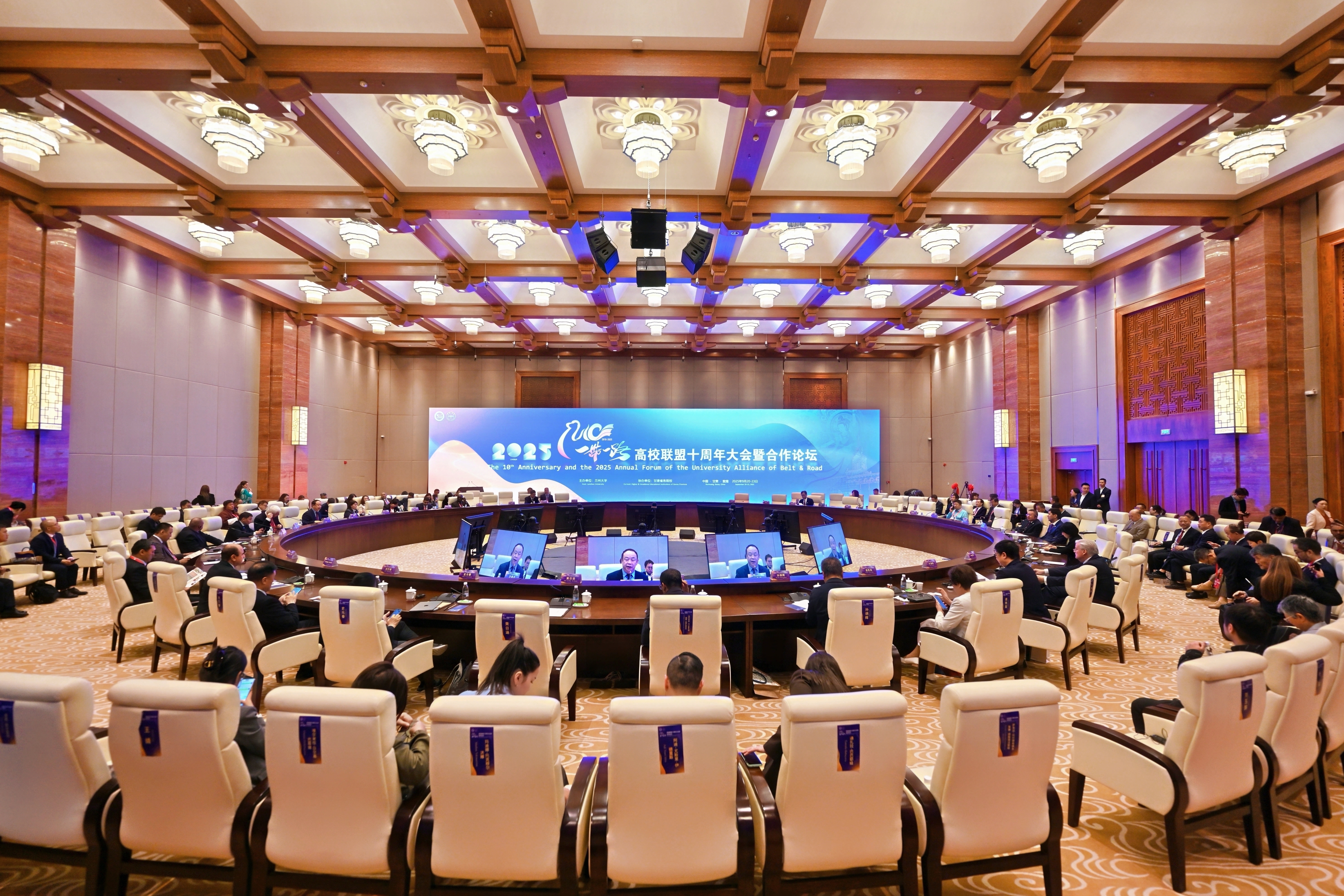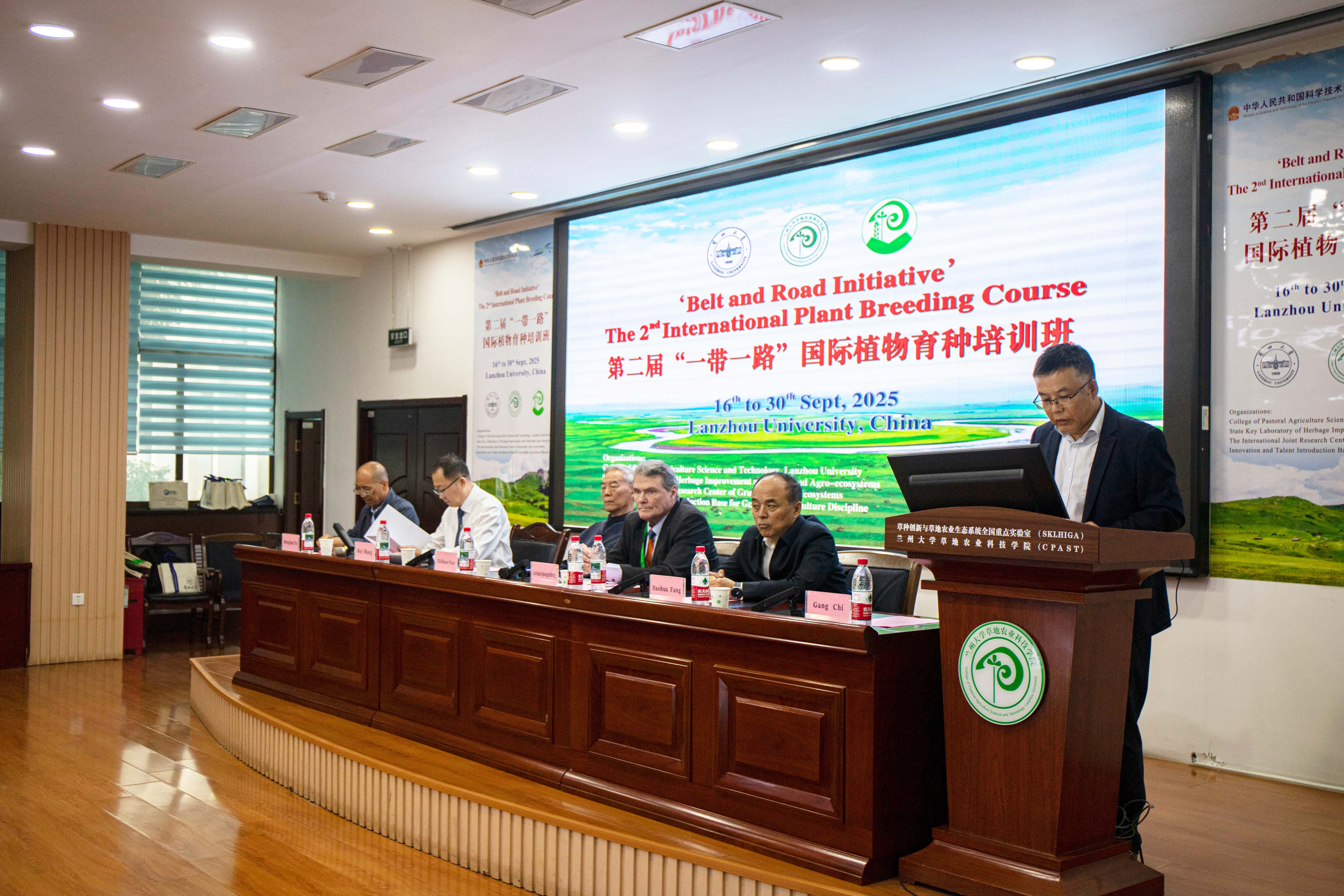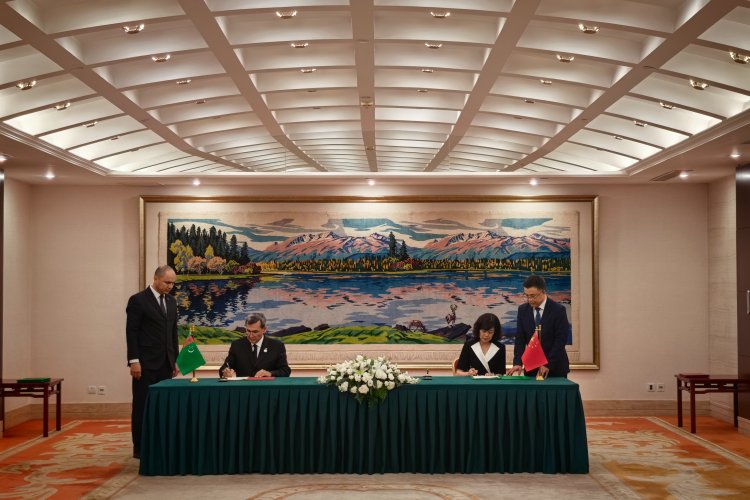On the afternoon of July 4, Mohammed Khouane, chairman of the Committee of Foreign Affairs, Cooperation and Immigration of the Algerian National Assembly, visited Lanzhou University (LZU). WANG Wei, vice-president of LZU, met with the guests. Heads at the Foreign Affairs Committee of the National People’s Congress and the Ethnic, Overseas Chinese, and Foreign Affairs Committee of Gansu Provincial People’s Congress attended the meeting.
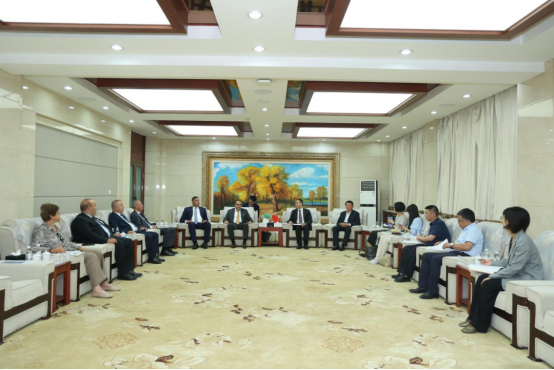
During the meeting, WANG offered an overview of LZU’s history and disciplinary strengths. He hopes that the visit would serve as a springboard for deepening cooperation with leading Algerian universities, particularly in talent cultivation and scientific innovation. He highlighted the upcoming 10th Anniversary Conference of University Alliance of the Belt and Road as a key platform for joint initiatives in agricultural science and technology, ecological sustainability, phytochemistry, and natural medicinal chemistry.
Khouane commended LZU’s academic achievements in environmental governance, agroecology, and natural product chemistry. He praised China’s practical approach to achieving sustainable development through science and technological innovation. Reaffirming Algeria’s strong commitment to its comprehensive strategic partnership with China, he expressed a keen interest in establishing an institutional cooperation framework between leading Algerian universities and research institutes and LZU. Khouane called for an expedited signing of bilateral agreements and extended a warm invitation for faculty and students from LZU to conduct academic exchanges and joint research in Algeria. He hopes that the two sides would expand practical cooperation by prioritizing key areas such as agricultural technology, germplasm resources, and ecological conservation. By strengthening collaboration in these fields, both sides could work together to tackle pressing global challenges like food security and environmental degradation, and jointly contribute to building a forward-looking model of sustainable development, he said.
During the visit, the delegation also visited LZU’s Management Center of Scientific Observing Stations.
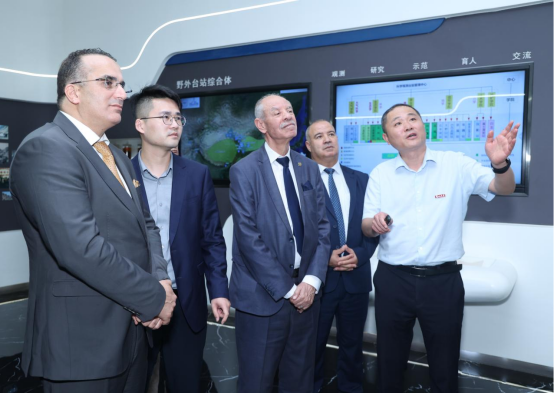
Background:
The People’s Democratic Republic of Algeria, located in northwestern Africa and bordered by the Mediterranean Sea to the north, is the largest country on the continent by land area, covering 2.38 million square kilometers. Arabic is the official language of Algeria, where French is also widely used, and Islam is recognized as the state religion. The country is classified by the World Bank as an upper-middle-income economy. Algeria established diplomatic relations with China on December 20, 1958, and the two nations upgraded their relationship to a comprehensive strategic partnership in February 2014. Over the decades, China and Algeria have maintained close cooperation in infrastructure, energy, healthcare, and other key sectors, with frequent high-level exchanges. Cultural exchanges have also flourished. A bilateral cultural cooperation agreement was signed in 1963, followed by 11 subsequent cultural exchange programs. In recent years, the two countries have frequently exchanged art troupes for major cultural events, receiving enthusiastic public support. In 2024, the University of Algiers 2 launched Algeria’s first Chinese language department.
Parliament of Algeria, also known as the Constituent National Assembly, was established in September 1962 following the country’s independence. Initially a unicameral legislature, it served as the nation’s supreme legislative body. The President, as head of state, holds the power to dissolve parliament and call early legislative elections. Under the 1996 constitutional reform, Algeria adopted a bicameral system comprising the People’s National Assembly (lower house) and the Council of the Nation (upper house), with both chambers sharing legislative authority. Bills must first be approved by the lower house before being reviewed by the upper house. The People’s National Assembly holds oversight and impeachment powers over the government, while the judiciary operates independently. Laws passed by the legislature are promulgated by the President. The legislature includes 12 standing committees, covering areas such as justice, foreign affairs, and national defense.


